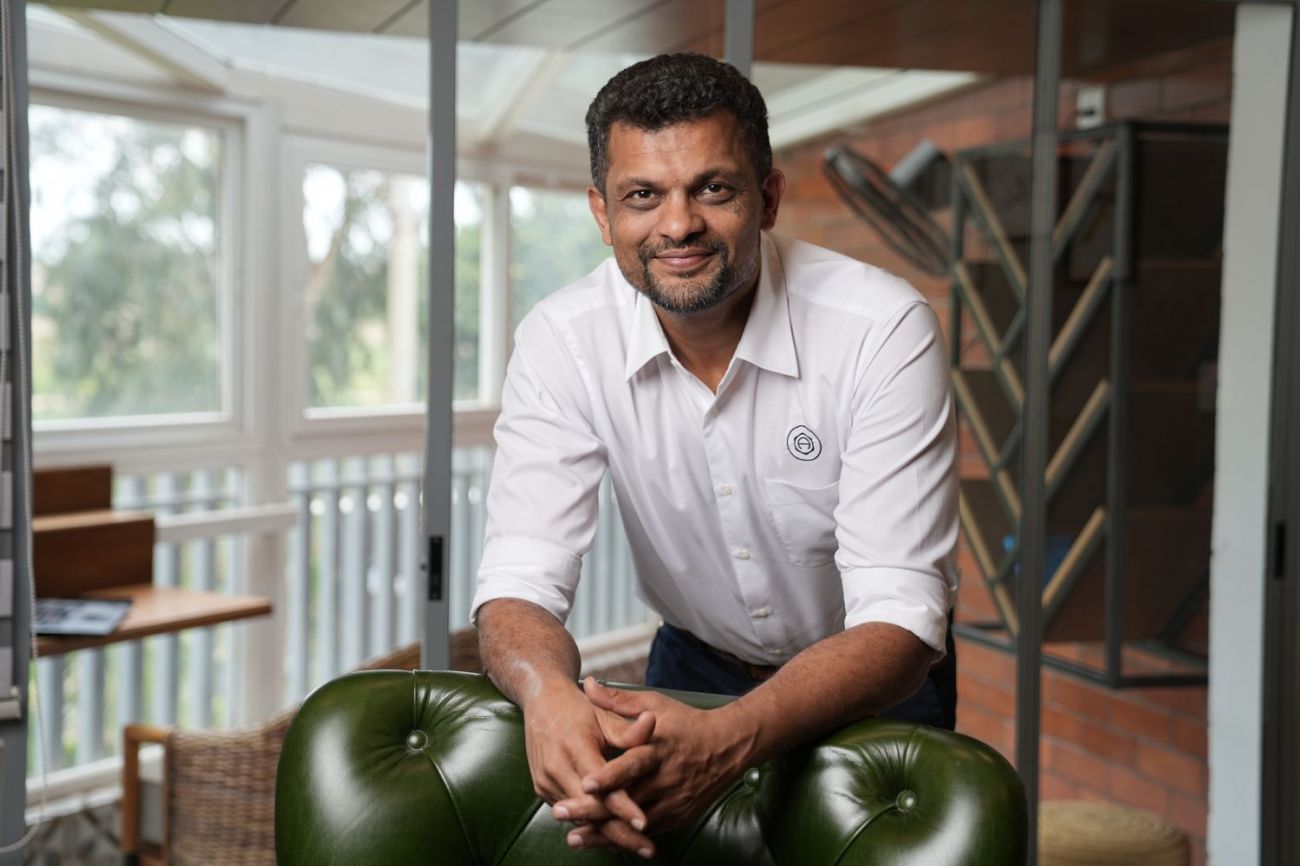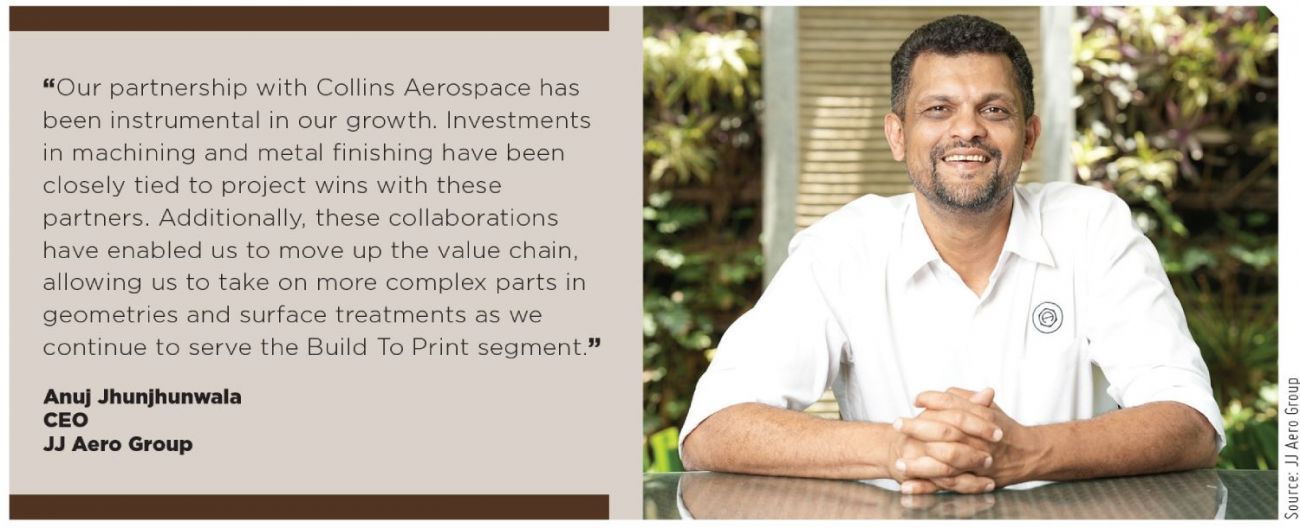Shaping the Future of Manufacturing

In this interview with MMI’s Soumi Mitra, Anuj Jhunjhunwala, CEO, JJ Aero Group, offers us insight into the factors that make India appealing as a manufacturing base, JJG’s contribution to transforming the country’s aerospace landscape, the opportunities and challenges facing it, the impact of policies like ‘Make in India’, and the future of advanced manufacturing technologies.
As India positions itself to become a global powerhouse in aerospace manufacturing, what key factors are driving this growth? How does JJ Aero Group, a leading figure in India’s rapidly expanding Aerospace Manufacturing industry, contribute to this transformation?
The aerospace supply chain in the western world, which still accounts for approximately two-thirds of the global market, has been under strain due to skilled labor shortages and inflationary pressures over the past five years. This has significantly increased the appeal of manufacturing bases like India. Additionally, geopolitical challenges with China have made sourcing from there much more complex for long-term industries like Aerospace. Companies like JJ Aero Group, which spend decades acquiring necessary certifications and approvals, and establishing relationships with marquee clients, play a key role in this transformation by raising manufacturing and service quality standards, thereby helping realign global supply chains.
Despite India’s advancements in Aerospace, we have yet to manufacture our own commercial aircraft. What are the key challenges preventing this, and how can they be addressed?
India’s share in the global aircraft supply chain remains under 1 percent. To build our own commercial aircraft, we must first scale our presence in the supply chain by transitioning from manufacturing components and sub-assemblies to major assemblies and, eventually, entire systems. The critical aspect is acquiring sensitive technologies in areas such as aerostructures, avionics, and landing systems. However, the Tata Group’s collaboration with Airbus on the C295 and the upcoming Helicopter Final Assembly Line (FAL) will soon help create the ecosystem needed to consider building a commercial aircraft in India.

How has India’s Defence Offset Policy influenced the Aerospace Components Manufacturing industry?
While the Defence Offset Policy has encouraged European and American defence manufacturers to source commercial components from India, its influence is relatively small compared to the broader realignments happening in the global supply chain.
JJ Aero Group sources nearly 98 percent of its raw materials locally. How does this impact your production capabilities and cost efficiency?
This figure pertains to our automotive division, where we source approximately 98 percent of our materials locally. In aerospace, the number is currently less than 5 percent, but we expect this to grow significantly in the coming years as Indian steel and aluminum mills work towards securing necessary approvals.
After securing INR 100 crore in funding from private equity firm CX Partners, what are your primary goals for the next phase of growth? How do you plan to leverage this investment to further strengthen your position in the market?
We are focused on expanding our new facility in Bommasandra, Bangalore, and increasing its capacity by introducing new categories of machinery. Additionally, we plan to further enhance our backward integration activities and are working towards setting up a solar park to improve our sustainability efforts.
| The ‘Make in India’ initiative has played a pivotal role in enhancing India’s attractiveness as a manufacturing hub. To compete with global leaders, we need further improvements in the availability and quality of key resources such as energy, land, and skilled labor. |
As someone who has spearheaded the development of more than 1,300 unique parts and driven innovation in aerospace manufacturing, what is your perspective on the startup ecosystem in India? What potential do you see for new ventures in this space?
Most of the startup activity we observe is concentrated in the defence, unmanned aircraft, and space sectors, which currently has little direct impact on our business. However, these areas offer significant potential for new ventures and contribute to boosting India’s startup ecosystem.
Which emerging technologies do you foresee having the biggest impact on aerospace manufacturing in the next five years? How is JJG preparing for these changes?
Sustainable Aviation Fuel (SAF) is poised to become a game-changer in the Aerospace Engine sector. While we do not anticipate major disruptions from other technologies in the immediate term, advancements in manufacturing techniques and the adoption of lighter, newer materials could play a role in the future. We are monitoring these developments and preparing accordingly.
 |
SOUMI MITRA Editor-in-Chief Modern Manufacturing India soumi.mitra@magicwandmedia.in |





 Facebook
Facebook.png) Twitter
Twitter Linkedin
Linkedin Subscribe
Subscribe